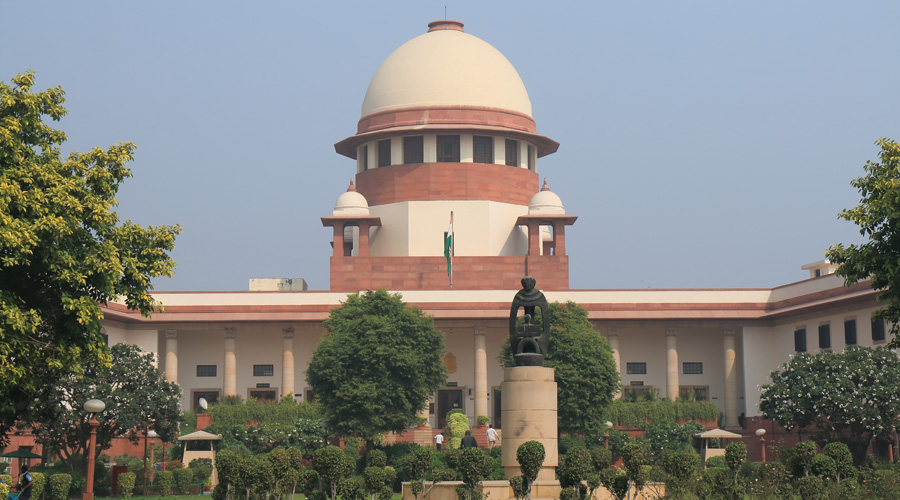The Supreme Court on Wednesday directed the Centre and states to file status reports in four weeks on compliance with its 2019 verdict for time-bound filling up of posts of Information Commissioners at CIC and state panels under the Right to Information (RTI) Act.
In an important verdict on transparency law, the apex court had come out with a slew of directions on February 15 and ordered that the selection process to fill vacancies at the Central Information Commission (CIC) and State Information Commissions (SICs) should begin two months before they arise and the search committee should select people of eminence from various fields and not be limited to bureaucrats.
A bench of justices S Abdul Nazeer and Krishna Murari noted that the Centre's last status report on compliance was filed over a year ago and asked Additional Solicitor General Madhvi Divan to file a fresh one on the status of vacancies, the steps taken to fill them and observance of other directions.
"Respondents, Union of India and states, are directed to file the latest status and compliance reports within four weeks from today. List after four weeks... Petitioner (RTI activist Anjali Bhadwaj) is also permitted to file an additional affidavit in the meantime," the bench said in its order.
The top court also permitted lawyer Prashant Bhushan, appearing for the activist, to file additional affidavit in the case after he sought a direction that the Centre be asked to file the dissent note of Leader of Opposition Adhir Ranjan Chowdhury who was part of the appointment panel which includes the Prime Minister and the Home Minister.
He said Chowdhury, during the meeting of the selection committee, had raised the issue of not being provided with the selection criteria for the CIC and ICs.
Bhushan also said that the Centre should be directed to put on record the criteria for shortlisting of candidates for appointment as CIC and ICs and information such as the existing vacancies and the names of persons who had applied for the posts.
The top court was hearing the plea of the RTI activist seeking implementation of the 2019 verdict on appointments to the CIC and SICs under the Act.
Bhardwaj has also sought a direction to government authorities on implementation of the top court's order asking them to appoint information commissioners.
At the outset, Bhushan said an application has been filed for filling up of vacancies in CIC and SICs.
Directions were given in 2020 that these posts need to be filled up well in time. Another important direction was issued. The court had deprecated the practice of selecting only bureaucrats or having a selection committee made up only of bureaucrats, he said.
He said there have been vacancies in SICs in states like Maharashtra, Odisha, Karnataka and West Bengal and there was a need to implement the directions of this court in entirety.
He alleged that around 75,000 and 36,000 cases under RTI are pending adjudication in Maharashtra SIC and the CIC respectively and the efforts have been made to render the RTI legislation ineffective.
Seeking selection criteria on record, Bhushan alleged that a bogus journalist has been appointed in the CIC and moreover, only bureaucrats are being considered for such appointments.
The ASG opposed the submissions and term bogus journalist used by Bhushan and asked him to file an affidavit to this effect for soliciting a response from the Centre.
They cannot make accusations or call the members bogus journalists. The maximum strength is up to 10 members. That doesn't mean that there are vacancies. Right now we have 7 members, the law officer said.
The apex court, in 2019, had said selection of information officers for the CIC and SICs should include people of eminence from various fields and not be limited to bureaucrats, a "bias" which is "writ large" in the current selection process.
It had said Parliament intended persons of eminence in public life be taken as CIC as well ICs but a "strange phenomenon is happening", that those persons who have been selected belong to only one category which is public service.
It had also said that to bring transparency in selection of ICs, states should adopt the Centre's process in which it uploads on the website the names of the Search Committee, the names of the candidates who have been shortlisted as well as the criteria followed for selection.
The top court had then directed the Centre and eight states -- Bengal, Orissa, Maharashtra, Gujarat, Nagaland, Andhra Pradesh, Kerala and Karnataka -- to fill up the vacancies without any delay within a period of one to six months.











